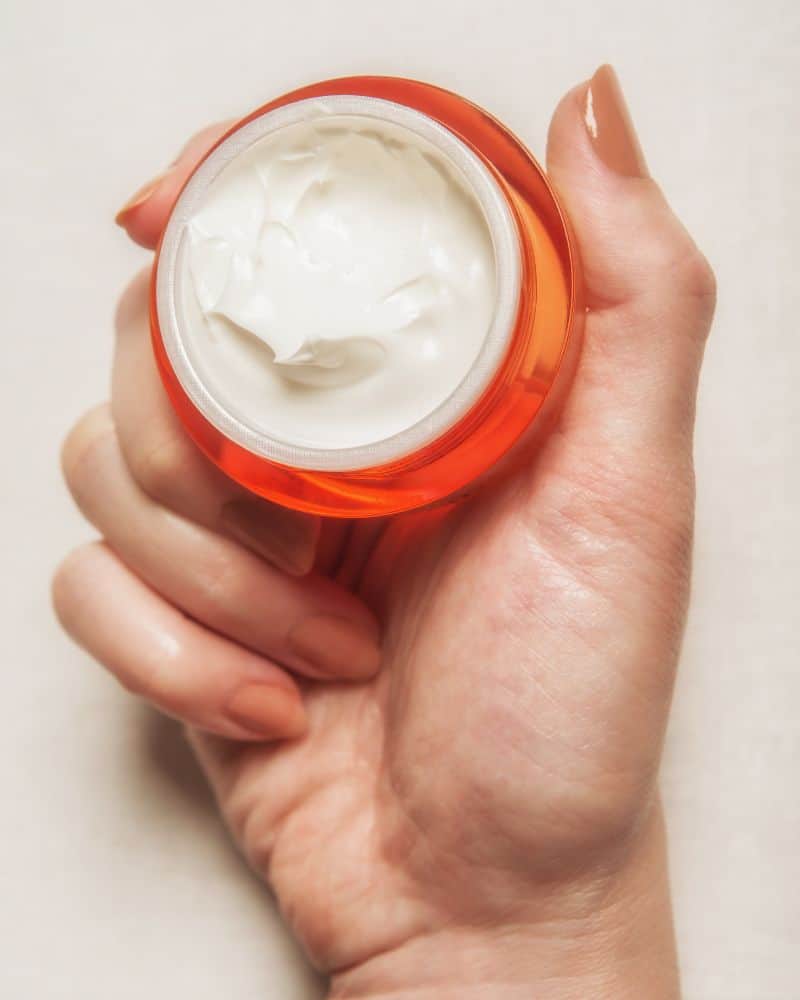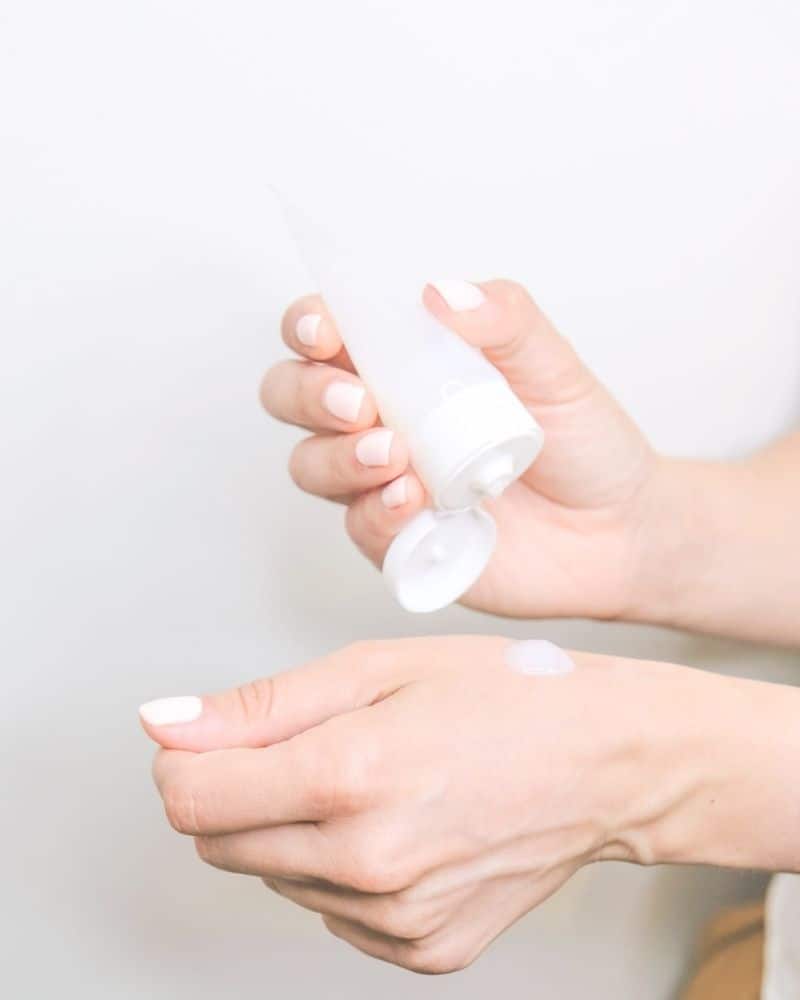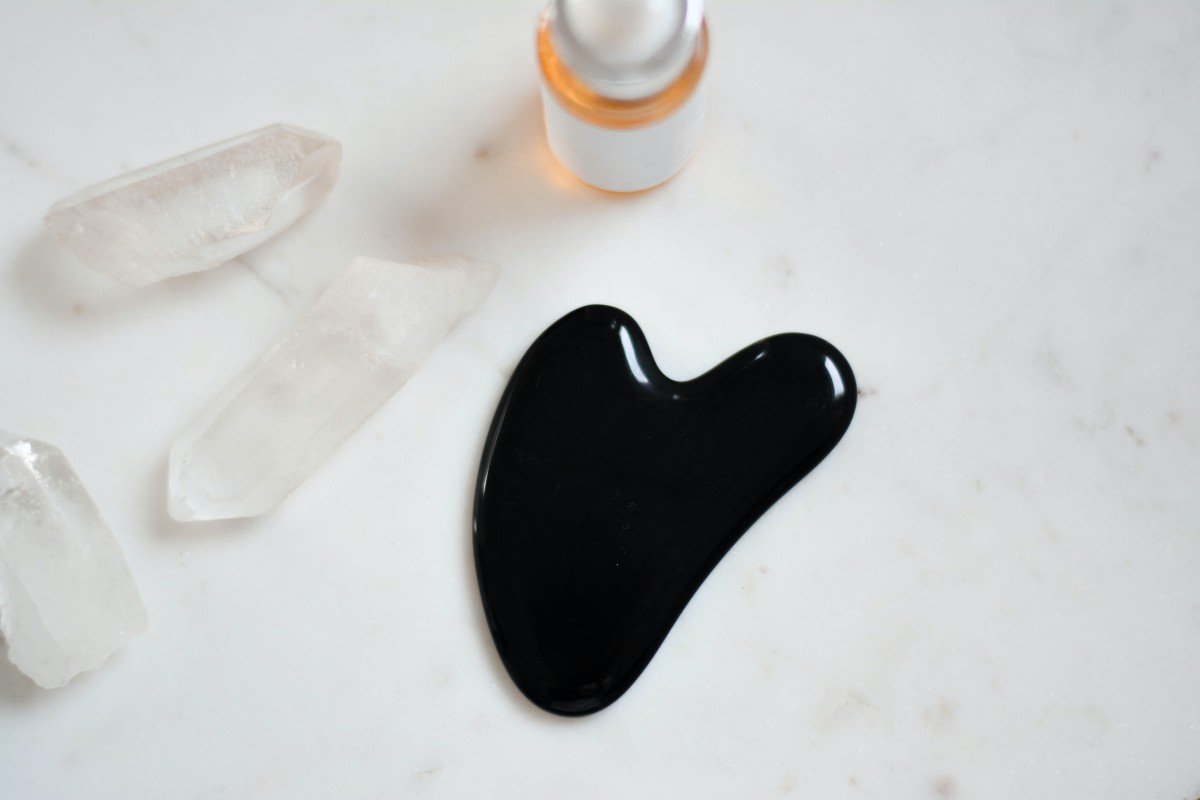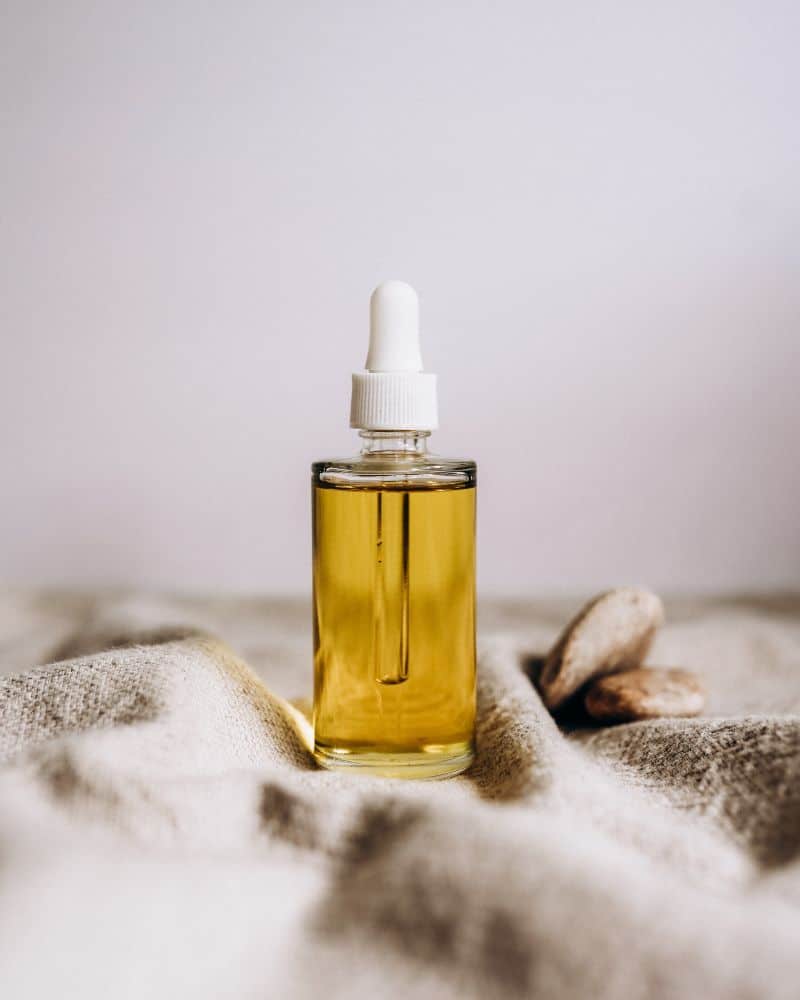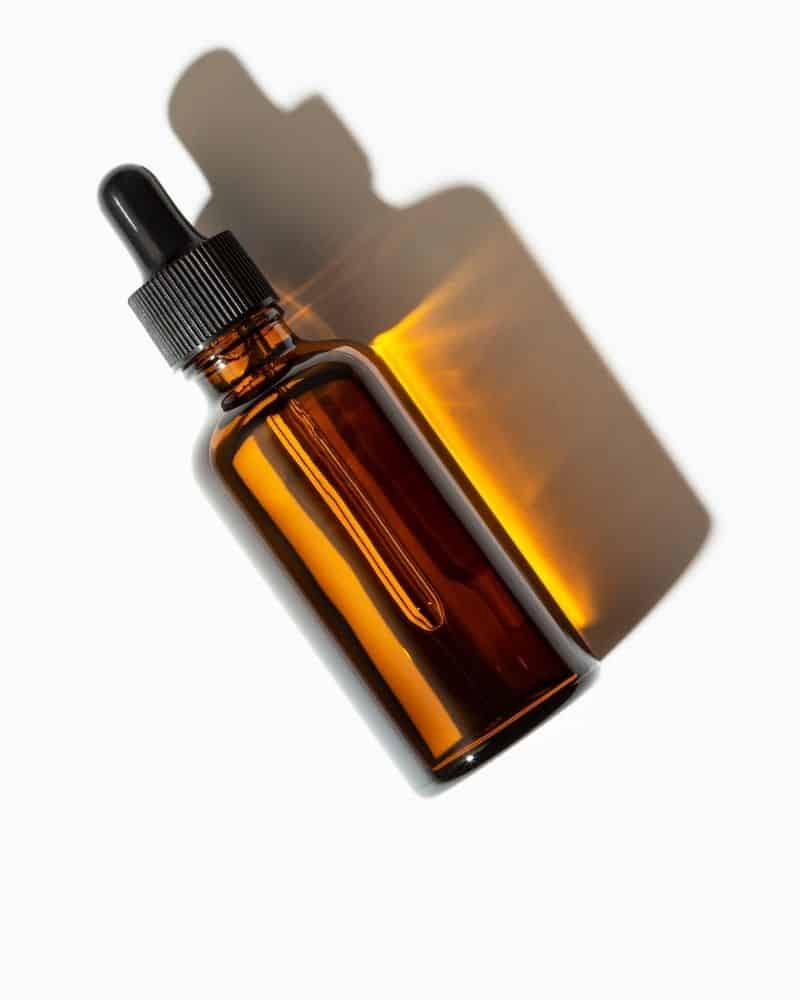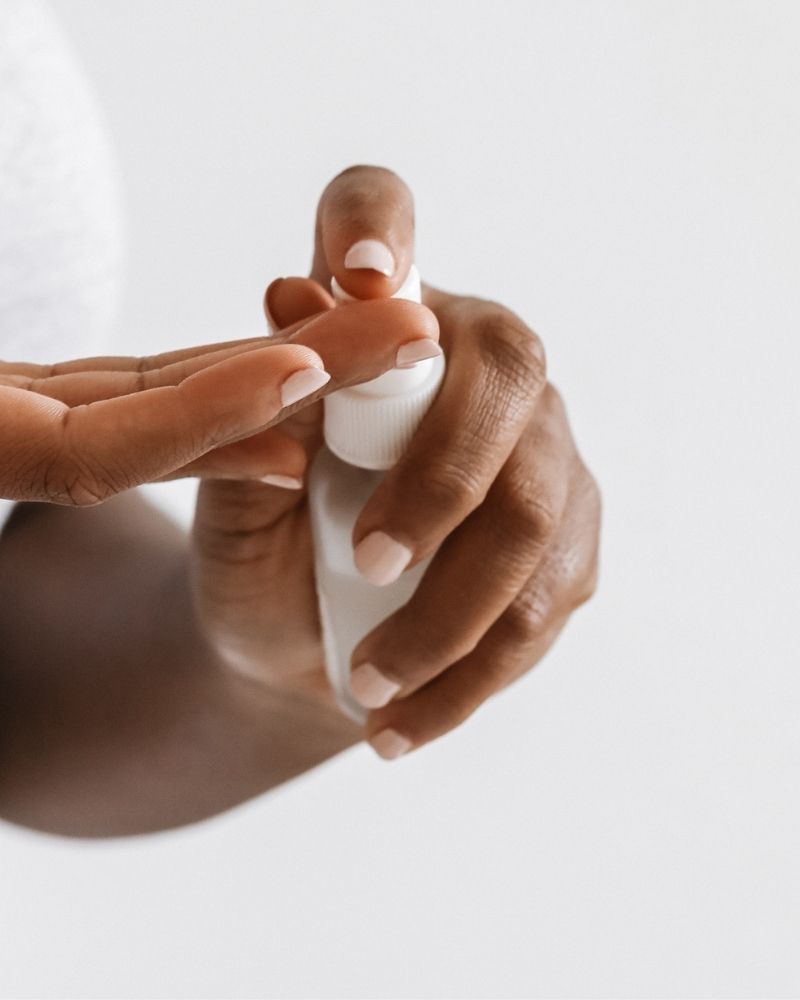Is Glycerin Good For Acne? You May Be Surprised!
This post may contain affiliate links.

Is Glycerin Good For Acne?
Dermatologists and skincare enthusiasts alike swear by the powers of glycerin to hydrate parched skin, strengthen the skin’s protective barrier and promote wound healing. That’s why it’s one of the most commonly used ingredients in skincare. Chances are, glycerin is in many of the products you are currently using. It’s claimed to be a do-it-all ingredient that’s suitable for all skin types. But many people wonder is glycerin good for acne and acne-prone skin? If you’re breakout prone, trying new ingredients and products is always a bit of a gamble, so you may be wondering is glycerin the answer to treating your acne? Let’s find out.
What Is Glycerin

Glycerin is a compound found in many skincare products. It is a colorless, odorless, and viscous liquid that is derived from vegetable oils. It is a humectant, meaning it attracts and retains moisture, which makes it great for using on the skin.
Glycerin, also known as glycerol or glycerine, kind of looks like clear syrup. By itself, it’s pretty stick and tacky.
Glycerin is commonly used in skincare products due to its ability to draw moisture from the environment into the skin. It helps to keep the skin hydrated and soft by forming a protective barrier on the skin’s surface. This helps to prevent moisture loss and can help reduce the appearance of wrinkles and fine lines.
Additionally, because it is non-comedogenic, which means it doesn’t clog pores, it is suitable for all skin types. Glycerin also has anti-inflammatory properties, making it helpful in treating skin conditions such as eczema and psoriasis.
Benefits Of Glycerin For Skin
Because of its ability to draw moisture from the air into the skin, glycerin can help your skin retain moisture which makes it great for those with dry skin or eczema. It also helps create a protective barrier on your skin that prevents it from becoming dry or irritated by external elements like wind or cold temperatures.
- Hydrates – Glycerin is a humectant, which means it is capable of attracting and holding onto water molecules. Not only does this help to hydrate the skin and lock it in to prevent transepidermal water loss
- Strengthens Skin’s Barrier – Glycerin has been shown to strengthen the skin’s moisture barrier, which helps keep skin healthy and fights off microbes than can lead to acne or other skin issues
- Protectant – Glycerin is able to lock in moisture while also forming a protective barrier against the elements, like cold weather, wind and other environmental factors
- Promotes Wound Healing – Glycerin promotes wound healing and speed up healing time. It’s great for healing acne, acne scars or other cuts or scrapes on the skin
- Moisturizes Dry Skin – Most notably, Glycerin is an incredible moisturizer. In fact, it’s one of the best ingredients to use to rehydrate and nourish dry skin
- Relieves Psoriasis & Eczema – Glycerin is also a great natural remedy for those with psoriasis and eczema. It helps to hydrate the skin, reduce redness and irritation, and protect against further damage
Glycerin is a wonderful ingredient for skin health. It helps to retain moisture, soothe and protect the skin from damage caused by external factors such as pollution and harsh weather. Glycerin also has anti-inflammatory properties that can help reduce redness and irritation, speed up wound healing and soothe dry skin.
Is Glycerin Good For Acne
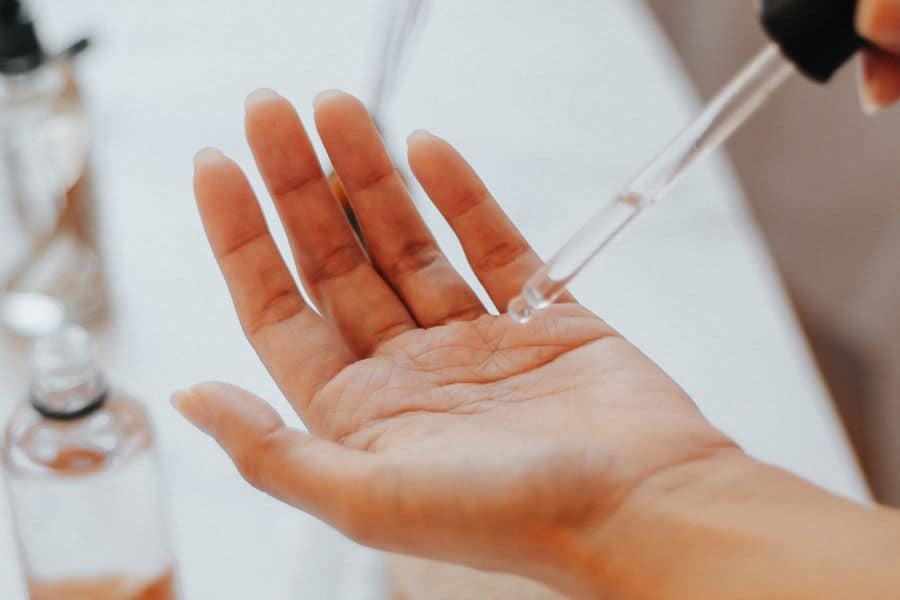
Before we can determine if glycerin is good for acne, we first need to look at what causes acne.
Acne is caused by 4 main factors – excess oil, clogged pores/hair follicles, bacteria and inflammation. So what does this mean for glycerin and acne?
Glycerin can help with 3 out of 4 of these causes of acne – excess oil, bacteria and inflammation. We’ll get into all the nitty gritty details of how in a bit. But for now, just know that glycerin can certainly help those with acne-prone skin.
Although it’s not considered an acne-treatment, glycerin can be a great ingredient to add into your routine, particularly if you have oily or acne-prone skin. This humectant effectively draws water into the skin and helps to keep it hydrated. It can also help reduce inflammation and soothe irritated or reddened skin due to its anti-inflammatory properties. Glycerin is best combined with other acne-fighting ingredients such as retinol, salicylic acid or benzoyl peroxide.
Related post: Does CeraVe Healing Ointment Help Acne?
Why Is Glycerin Good For Acne
Although you’ve probably not heard of glycerin as an effective acne treatment, it can actually help in many ways. So how does glycerin help acne exactly?
Remember the 4 main causes of acne: excess oil, bacteria, clogged pores and inflammation.
Let’s take a look at excess oil production. When skin is dry or dehydrated, it will overproduce oil to try and compensate. When there’s excess oil on the skin, it leads to clogged pores. When bacteria gets trapped in pores, it leads to the formation of acne. Which then leads to inflammation while your body tries to fight off the bacteria.
So, glycerin can help to balance oil production, which can help to reduce and prevent acne.
Glycerin is also anti-inflammatory so when a pimple does form, it can help to decrease the inflammation, redness and swelling.
Glycerin also plays a key part in keeping the skin barrier healthy and strong. When the skin barrier is damaged, it is more susceptible to acne-causing bacteria, leading to more breakouts. Glycerin helps to keep the skin barrier strong so it can defend against bacteria and other microbes.
So, indirectly, glycerin can certainly help acne. However, it’s best combined with other treatments like retinol, salicylic acid, sulfur or benzoyl peroxide.
Is Glycerin Soap Good For Acne?
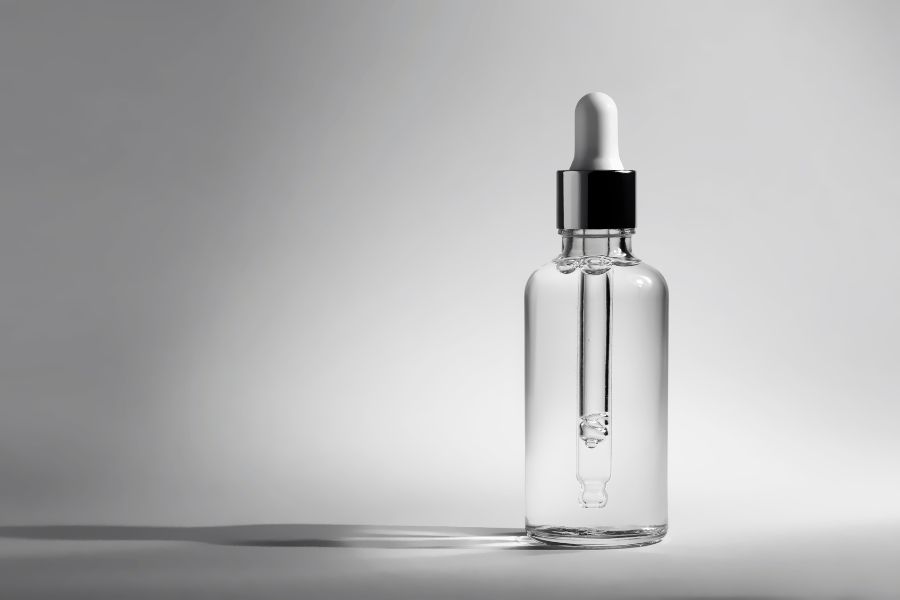
Yes, glycerin soap can be good for acne as it helps to hydrate the skin to balance oil production, soothe inflammation and strengthen the skin barrier.
However, it’s important to look at the other ingredients in the soap. For example, many soaps contain essential oils or fragrance which can be irritating and drying. It also might contain butters and oils that can be comedogenic and clog pores. They also usually contain sulfates such as Sodium Lauryl Sulfate which is a harsh cleansing agent that strips the skin of its natural moisture and oils.
Soaps like these often have a high pH which can disrupt the skin’s moisture barrier and the natural microbiome of the skin. And when both of these are disrupted, it can lead to acne.
So, if you’re looking for a glycerin soap that is good for acne-prone skin, make sure to look at the other ingredients and ensure they are non-comedogenic and pH balanced.
Does Glycerin Clog Pores
Glycerin does not clog pores and is considered non-comedogenic, so it is suitable for use on all skin types. In fact, glycerin is naturally found in our body and is a key component of our skin’s own hydration system.
Does Glycerin Cause Acne?
No, glycerin is not known to cause acne. As we discussed earlier, it can be beneficial for people with acne-prone skin. It’s also naturally found in our body and skin, so it’s highly unlikely that glycerin can cause acne or breakouts.
Is Glycerin Good For Acne Scars
Glycerin can be an effective treatment for acne scars and hyperpigmentation, but it’s best used in combination with more powerful treatments like vitamin c, retinol, alpha arbutin or AHA’s.
Glycerin does have slight exfoliating properties that can help to fade dark spots and discolorations, but it’s not nearly as strong as something like lactic acid.
So while glycerin can help acne scars, there are certainly better and more effective options out there.
Is Glycerin Good For Acne FAQ’s
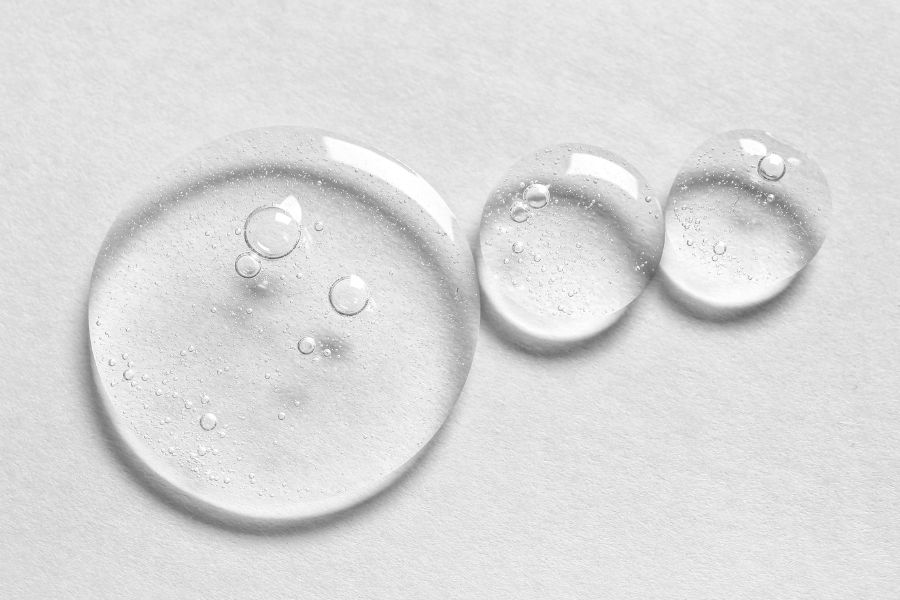
Can I use glycerin on my face everyday?
Yes, you can use glycerin on your face every day. It can be used morning and night as part of your skincare routine.
Is glycerin good for oily skin?
Glycerin is a great ingredient for oily skin as it can help hydrate the skin without being too heavy or greasy. It’s similar to hyaluronic acid – it provides lightweight hydration. It is a humectant that attracts water to the skin, making it a good option for oily skin types to keep skin hydrated and the skin barrier healthy.
Why does glycerin make me break out?
Although Glycerin is considered safe for oily and acne-prone skin, it’s important to keep in mind that everyone’s skin is different and what works for one person might not work for another. So, it is best to start with a small patch test before applying it on your face regularly.
If you use a product with glycerin and find that it breaks you out, chances are it’s another ingredient in the product that is causing breakouts. Glycerin itself has a very low likelihood of causing breakouts, but it can happen.
Is glycerin good for oily skin?
Yes, glycerin is good for oily skin as it helps to balance the skin’s oils. It also helps to keep a healthy moisture barrier which is important in preventing excessive oil production.
Is Glycerin Good For Acne Wrap Up
All in all, using glycerin for acne treatment may have some benefits depending upon your individual needs—but don’t expect miracles when using this to treat acne. While glycerin can help with acne and acne scars, there are more effective treatments available like vitamin c, retinol, salicylic acid. Glycerin is suitable for all skin types but those with acne-prone skin, oily and dry skin can benefit the most from this ingredient. It helps to hydrate the skin without being too heavy or greasy. It is also non-comedogenic and can help to soothe inflammation, reduce redness and keep the skin barrier strong.
